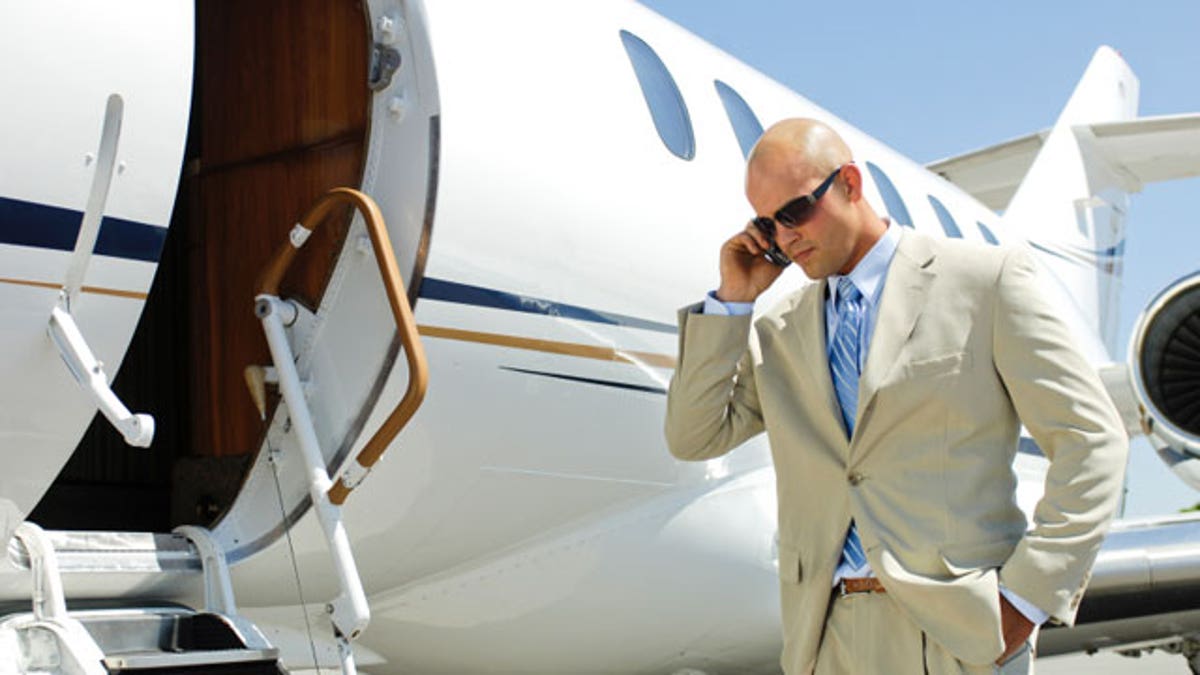
(www.InnovativePhotography.net)
If you ask Alec Baldwin, he'll probably tell you that flying isn't fun.
After the actor was kicked off a flight for playing with his electronic device, plenty of people were sympathetic to his plight: They want to use their e-readers and smartphones during take-off and landing, too, and think the FAA should lift its ban. I disagree -- and the reasons seem obvious.
Of course I find it irritating not to be able to use my phone or laptop or iPad on the tarmac. Just before the holidays I was trapped with dozens of others on a plane glued to the ground during a 3-hour delay: No electronics allowed. So I couldn't communicate with my daughter's school to say I would be late, or make alternate arrangements. I was one cantankerous parent.
Some recent tests have suggested this is all unnecessary. Cell phones and other electronic devices do not, indeed could not, interfere with cockpit communications or navigation. But this is clearly false.
I have several cell phones that interfere with a variety of devices, including the FM radio in my car and my expensive desktop office phone -- and that's on a land line. Data transmissions on an old Motorola Razr phone, for example, generate enough GPRS noise to drown out Led Zeppelin or make voices unintelligible on the phone. At least one new smartphone I'm testing creates similar interference. Now imagine 100 passengers with similar phones on a plane during take off. (Pilot: “I'm sorry, did you say turn left or right on runway two-niner? Oops!”)
Another related issue is the use of GPS. The FAA has been working to upgrade aging radar-based systems with GPS networks for air traffic control and positioning. It should improve safety and pilot awareness. But GPS signals are notoriously vulnerable to disruption: They're relatively weak to begin with, using just 25 watts to send signals from satellites that are roughly 12,500 miles above the earth. In fact, it's so easy to block such signals that GPS jammers are sold online for $30 (they are illegal in the U.S.).
Simply allocating specific radio spectrum to particular devices does not entirely solve the problem either. A recent example is LightSquared, a company that wants to build a network of 40,000 towers across the country to deliver broadband Internet access using the 4G LTE (Long-Term Evolution) wireless-data protocols. The company wants to use a frequency spectrum near the existing GPS L1 band. (Consumer GPS devices typically rely on L1 signals, in the 1575.42 MHz wavelength.)
Guess what? Tests by the Department of Transportation and the National Coordination Office for Spaced-Based Positioning, Navigation and Timing now show that LightSquared's proposed network would make most GPS devices unusable -- even though technically it wouldn't be using the same frequencies.
And what about those little e-readers like Amazon's Kindle? They look innocent enough. Unfortunately, they can also contain embedded transceivers that constantly ping the network for updates, even if you're not using them. And with dozens of different tablets and e-readers on the market -- some with cellular services and some not -- it would be nearly impossible for a flight attendant to determine the difference. Can you imagine how long it would take your flight to take off if they had to check every single gizmo?
Additional variables make the FAA's ban the prudent choice. Shielding from such interference varies according to each type of aircraft and each instrument. No one can guarantee that with the thousands of possible permutations a smartphone or laptop or tablet will never interfere.
Grumpy gadget geeks complain that pilots are now allowed to use iPads themselves; why can't they? The answer, of course, is that the pilot can control the device -- and turn it off if need be. Frankly, I don't want to sit on the tarmac simply because Mr. Smith sitting next to me can't figure out how to put his Playbook into airplane mode.
While I was steaming, crammed in my seat and fretting over my daughter, I recalled what it was like before cell phones. Flight attendants were less harried and offered you a pillow. The cabin was quieter, and it was fun to fly -- even without Words With Friends.
And not being able to use an electronic device then wasn't much of a hardship. After all, I'd rather arrive late to pick up my daughter than not arrive at all.
